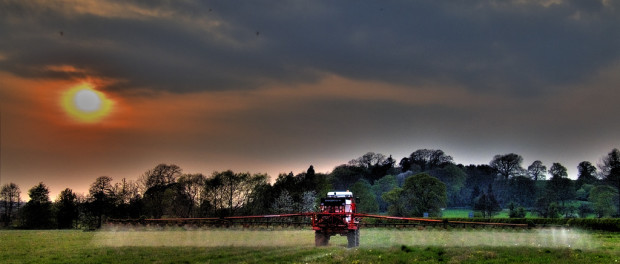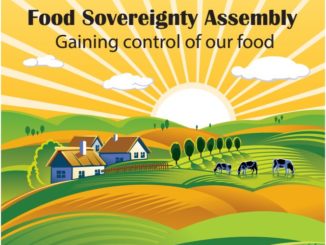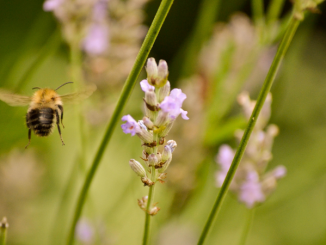“(T)he effects of dosing whole landscapes with chemicals have been largely ignored by regulatory systems. This can and should be changed.”

That’s according to a damning new article in the prestigious journal Science, published today and written by Alice M. Milner and Ian L. Boyd. Boyd is the chief scientific adviser to the UK government at the Department of Environment, Food and Rural Affairs, while Milner is also seconded at the Department. Neither were writing on behalf of the Department in this article.
Emphasising the under-considered area of long term broad environmental effects, the pair also pointed out that “without knowledge of safe environmental limits, the total pesticides used—and therefore the total environmental dose—is governed by market demand rather than by a limit on what the environment can endure”.
These two quotes point to the core of their concerns – the lack of “effective global governance of pesticides and their use”, which is large scale, long term, and causes causes verifiable harm to the living world.
So while standard toxicity tests are carried out on individual pesticides this is of “limited use” when considering wide, “diffuse environmental effects that arise from ecosystem connectivity at a landscape scale”.
They are worried about the lack of organisation and consistency in how pesticides are controlled and managed globally.
Both the OECD Agricultural Pesticide Programme and the United Nations Food and Agriculture Organization (FAO) International Code of Conduct on Pesticide Management are cited as attempts at harmonisation of standards, but neither are binding. Moreover, “developing countries often lack the expertise to assess this evidence and have lower standards of implementation and enforcement”.
Instead, they cite procedures in pharmaceuticals as a superior model for substance management which could be replicated by pesticide regulators.
“Pesticidovigilance” they suggest should learn from “pharmacovigilance”— which “involves the collection, detection, assessment, monitoring, and prevention of adverse effects of pharmaceutical products” and involves a four stage process which “continues throughout the lifetime of each product, building a well-developed safety database for that product.”
Pesticides are nevertheless “an important component of intensive agriculture and, therefore, of global food production”. And while it is the case that “when used at industrial scales, pesticides can harm the environment”, there is, nevertheless, “a trade-off between this effect and the need to produce food”.
“Agricultural systems need time to adapt, and regulation can help to make the use of a pesticide more proportionate to the trade-off between costs and benefits” they add.





